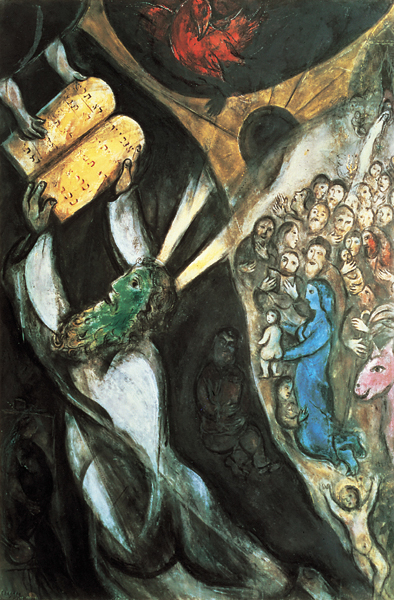Image Details

© 1999 Artists Rights Society (ARS), New York/ADAGP, Paris/Photo by Giraudon/Art Resource, NY
Heavenly hands pass Moses the Decalogue, in Marc Chagall’s “Moses Receives the Tablets of the Law” (1950–1952). The Ten Commandments appear in two different versions in the Hebrew Bible. In Exodus 20, the Israelites are enjoined to “remember” the Sabbath day because it is the day God rested upon completing his creation. In Deuteronomy 5, the Israelites are commanded to “observe” the Sabbath because they were once “slaves in Egypt.” A first-century B.C. Dead Sea Scroll (4QDeuteronomyn) harmonizes both variants into one long Sabbath commandment—but not at the expense of the text’s authority. To the contrary: As author Sidnie White Crawford demonstrates, variants in a sacred text may have enhanced, rather than reduced, its sacred status. For Second Temple Jews, the authority of a text lay in its general message rather than in its precise words.
